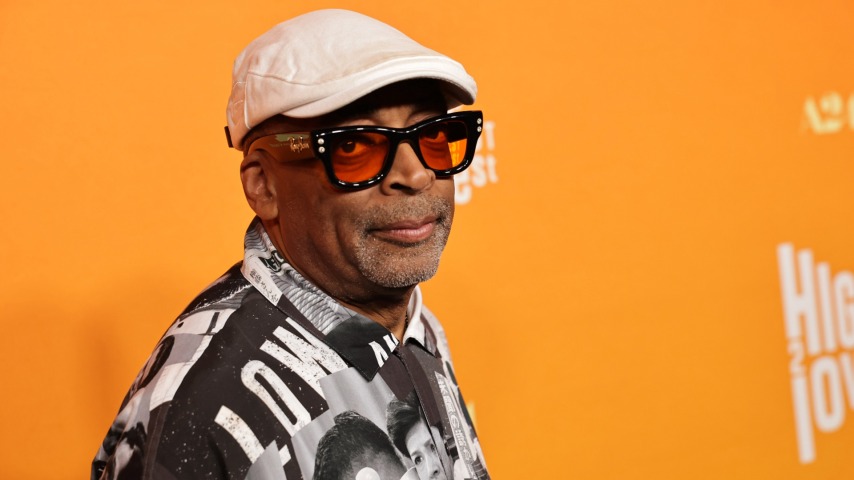Spike Lee is, pretty famously, not a guy who keeps his opinions to himself. As a director, a writer, a film professor, and just a dude that loves to talk, Lee has made a name for himself as a man who will talk both shit and sugar at the drop of a hat. Certainly, that gift for candor (and gab) has been in firm evidence lately, in the press cycle around his new film Highest 2 Lowest. (As opposed to Lee’s most persistent star, Denzel Washington, who’s mostly just on-hand at press events to crack jokes and let you know how over the concept of films as a whole he might be.) But if you want to get Lee really worked up on a topic? The secret is apparently to ask him about AI.
This insight gleaned from an interview Lee recently gave to Inverse, ostensibly focused on the film, a riff on Akira Kurosawa’s High And Low. But Lee goes sprinting off topic with a distinctive quickness, especially when interviewer Lyvie Scott asks him whether AI attitudes adopted by Washington’s character, record producer David King, map onto Lee’s own. Here’s Lee, asked if he was “condemning AI” through David: “I wasn’t condemning AI across the board. In the film where David King [shares how he] feels about art, he’s saying, ‘A machine’s not a heart, a soul.’ So definitely in that moment, yeah, that’s me talking—but it’s not about other uses of AI.”
So far, so on-topic. But Lee has also started the mental snowball rolling: “Another thing which I thought about, being a tenured professor of film: What about people writing their thesis papers, term papers, even homework in elementary school? That is, in my opinion—I don’t want to sound like an old fuddy-duddy—but that is not good. It’s a shortcut. It’s a shortcut and you’re cheating yourself.”
At this point, Lee starts getting egged on by his own office décor, which heavily features pictures of various artists he loves and admired, especially musicians. “Now some scientists might say AI could be developed as great as Leonard Bernstein. I’m looking at the wall right here. Aaron Copland, Miles Davis, Coltrane, Nat King Cole, Sammy Davis Jr., Nina Simone… I don’t believe it. It’s a machine. If you have ears, you could hear the heartbeat. You could hear the soul, the love, the pain, the anguish. A machine? Two words, ‘Nah, son.'” We then reach the climax of Lee getting charmingly worked up on this topic, when he starts literally taking pictures off the wall to illustrate his point. Here’s the final bit, complete with Scott’s descriptions of Lee’s animated actions: “[He points to a portrait of Frank Sinatra.] You’re telling me they made a machine that can sing better than Ol’ Blue Eyes? Fuck no! Fuck no. Hold on, hold on, hold on. [He stands to take a portrait off the wall.] You’re telling a machine can sing like Mahalia Jackson? Fuck no. Oh, my God. You’re telling me a machine can sing like Billie Holiday? Fuck no! Who else I got?”
(At this point, Scott notes that “I got you fired up,” and Lee considerately relents, saying “I don’t want to go to all the things hanging on the wall. You’re on a schedule.”)
None of this is exactly surprising—few modern artists are as committed to talking about art itself as Spike Lee, so hearing him loudly, and enthusiastically, reject big swathes of corporate automation of the work he’s devoted his life to is easy to imagine. Still, it’s a pretty lovely dose of anti-AI energy. (See also Lee’s refreshingly enthusiastic denial when asked if David King’s efforts to recover his creative spark in the film were also auto-biographical: “I’ve been blessed. For me it’s been a question of getting the money for a film, but… the love for film… I’ve never lost that. Not saying it is going to happen in the future, but as yet it has not happened.”)

 Keep scrolling for more great stories.
Keep scrolling for more great stories.
